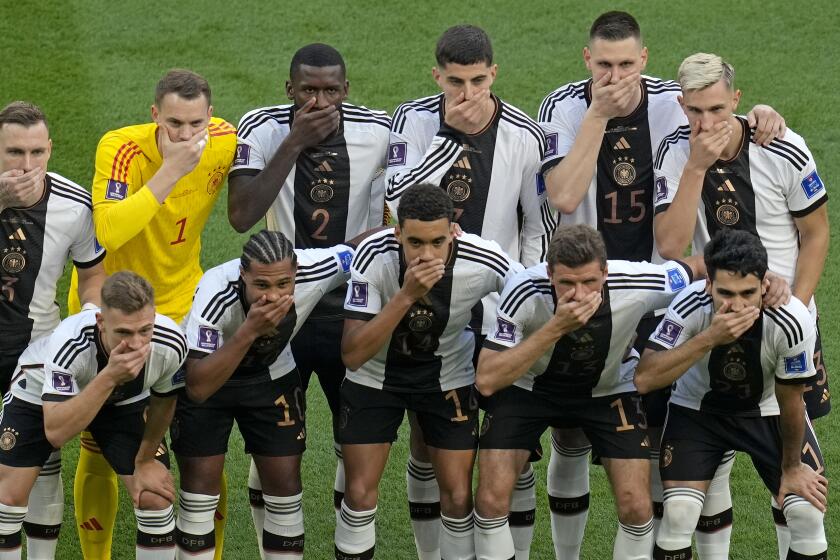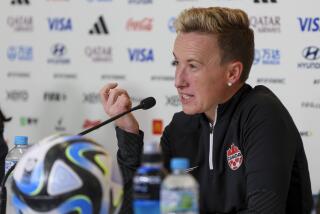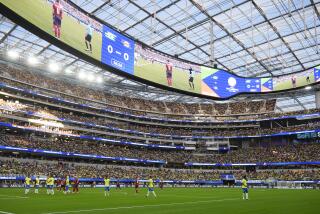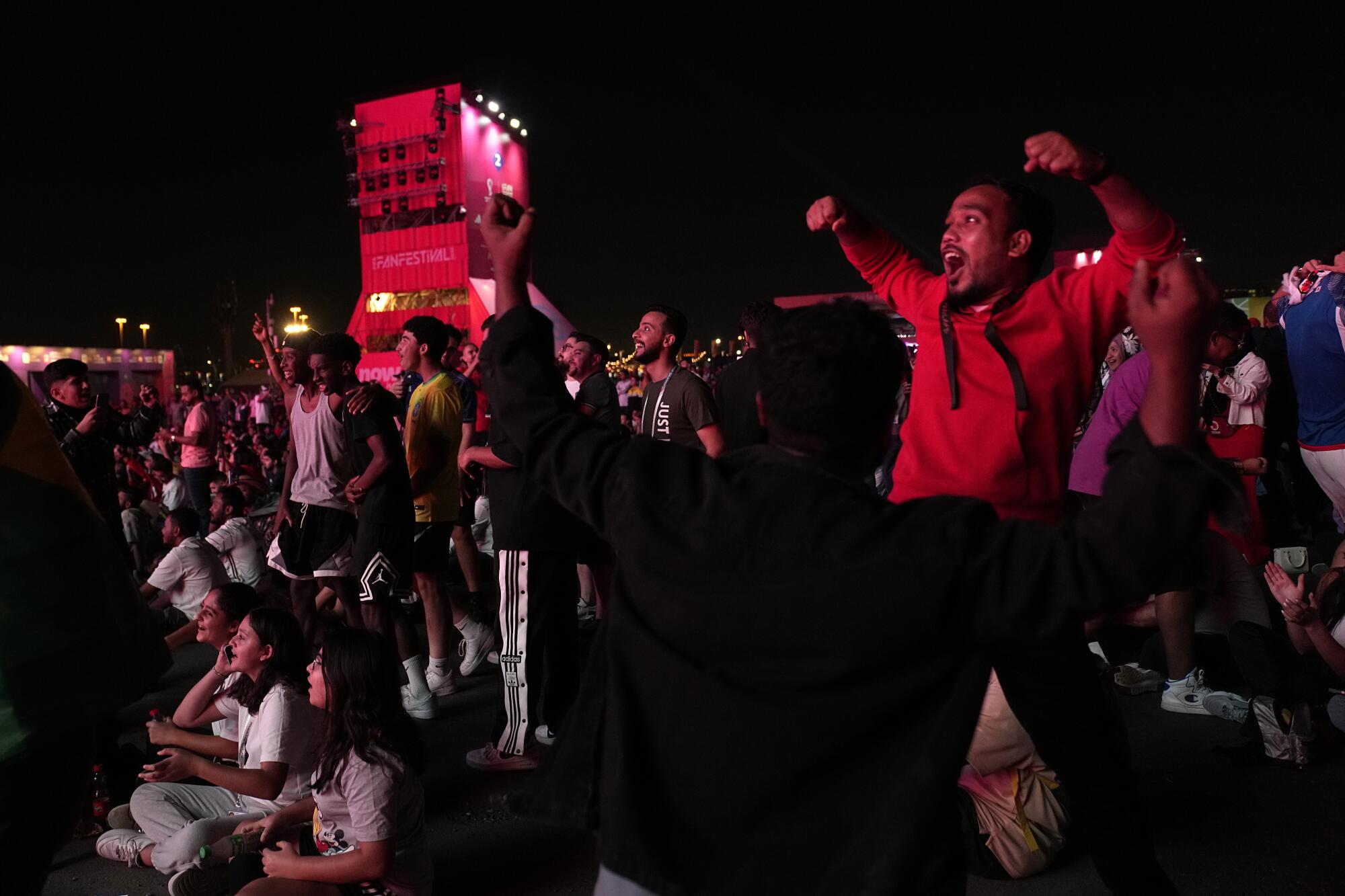
- Share via
AL RAYYAN, Doha — With all eight stadiums located within a 35-mile radius of downtown Doha, the 2022 World Cup is the most compact in history. During the group stage, that makes it possible to attend four games a day.
Possible, but it’s not permitted.
To avoid congestion and make more tickets available to more people, FIFA has limited fans and the media to two games a day, with a four-hour window between kickoffs. But that’s still pretty good, right? Watching four of the best teams in the world on the same day?
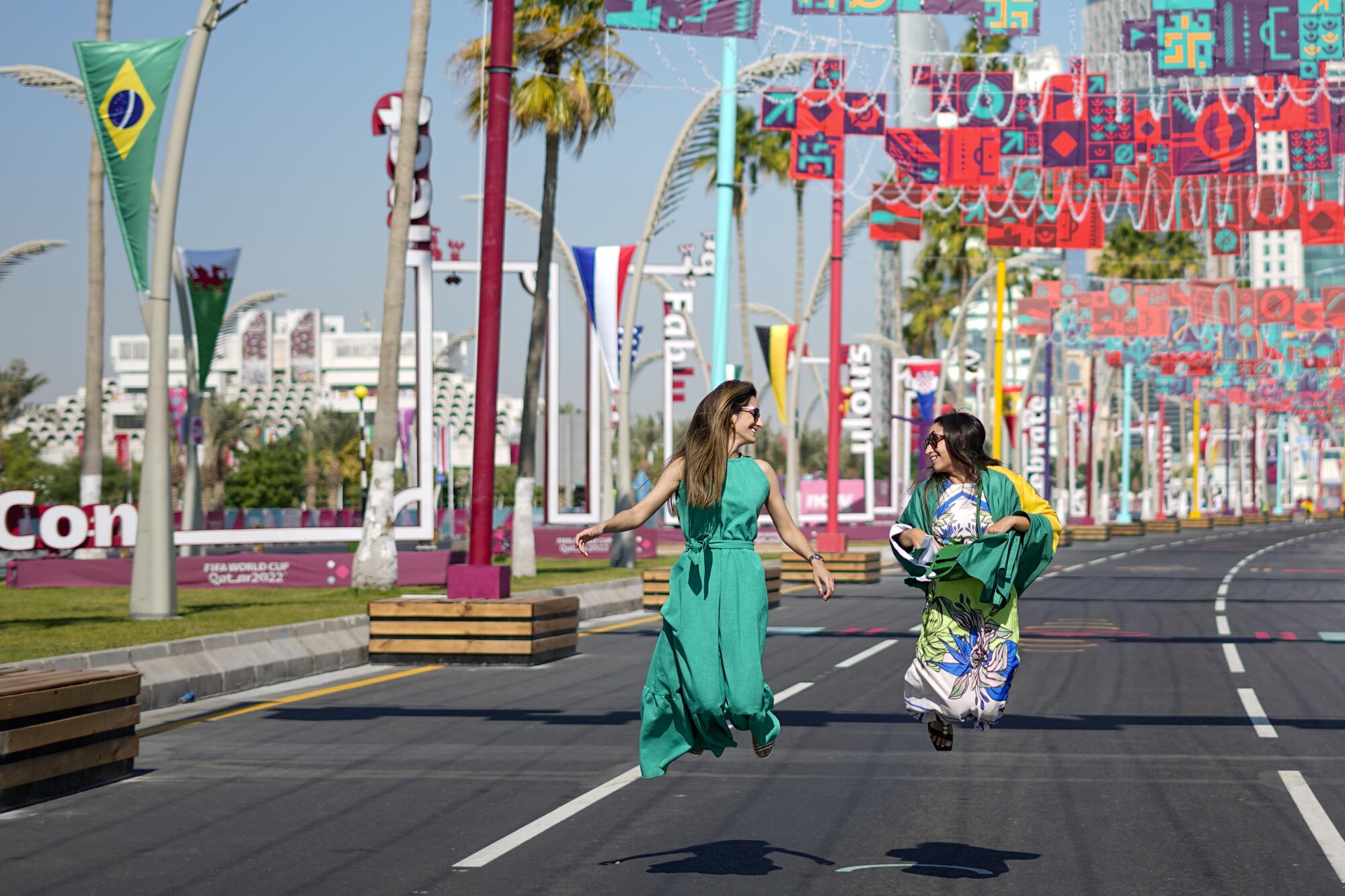
And with public transportation, free to World Cup visitors, serving all eight stadiums, it’ll be a breeze, the Qataris said.
But then the Qataris have already reneged on everything from human rights and beer sales to bus schedules and the menu in the media cafeteria. So maybe this was another empty promise.
I decided to find out. Armed with nothing more than a media credential and no familiarity whatsoever with Qatar’s Metro system, I set out Wednesday to see Germany play Japan at Khalifa International Stadium at 4 p.m., followed by Canada-Belgium less than 12 miles away at Ahmed bin Ali Stadium at 10 p.m.
I can see Khalifa from my apartment in Doha’s Al Rayyan neighborhood, so that seemed a logical place to start. I left just after noon and the leisurely stroll to the stadium confirmed something I’ve felt since the World Cup began, mainly that the tournament has produced little in the way of buzz and excitement outside the stadiums or the fanfest at the Corniche, Doha’s winding bayside promenade.
During my 30-minute walk, I passed only one person dressed in a German national team shirt. I saw no flags, no one in face paint and nothing resembling a march to the match. The stadium parking lots were empty three hours before kickoff.
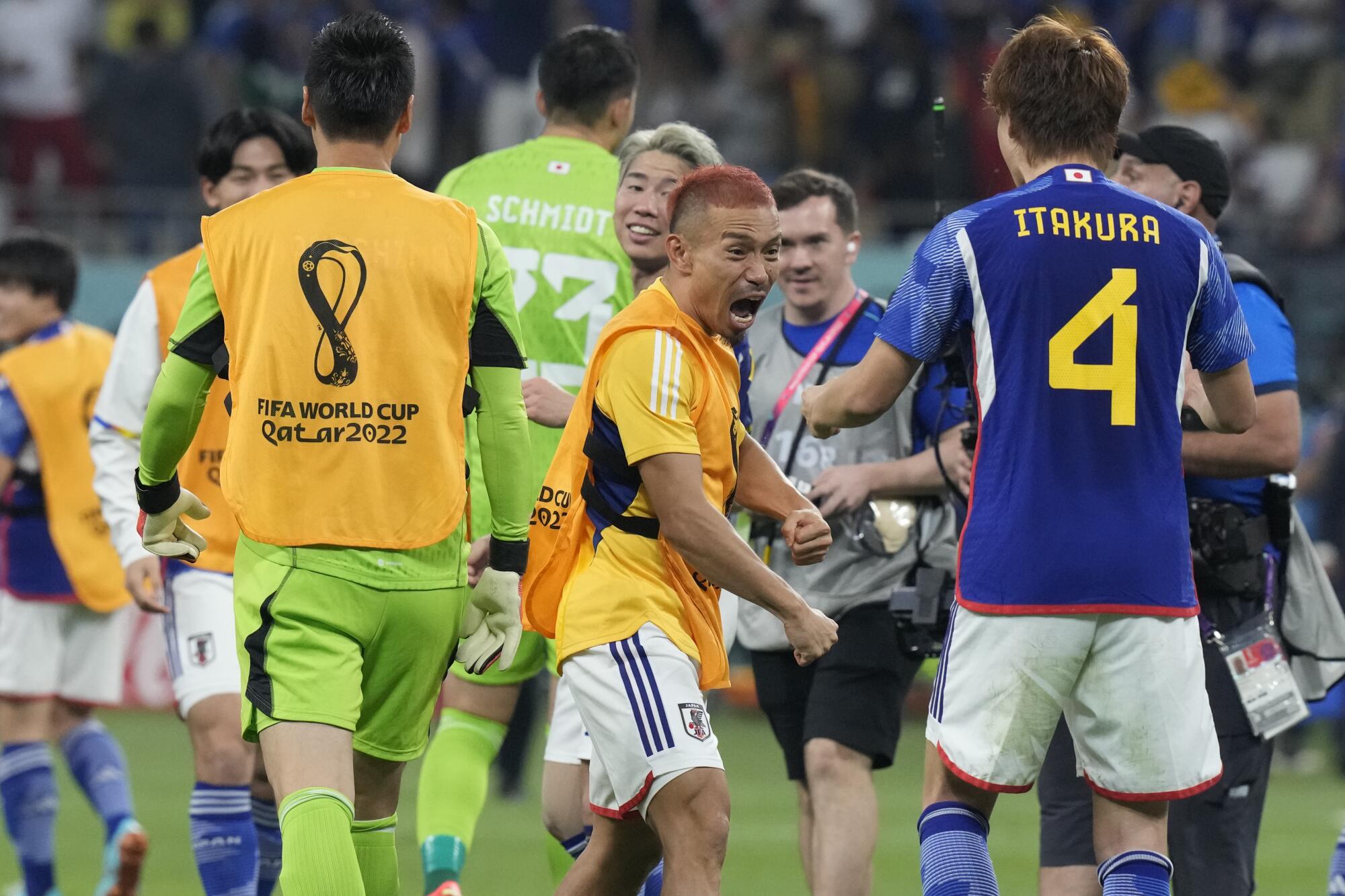
But the match itself, which ended in a 2-1 Japan victory, was World Cup-worthy. Germany took an early lead on a penalty kick from Manchester City’s Ilkay Gundogan, one conceded by Japanese keeper Shuichi Gonda. Gonda was brilliant after that though, making eight saves, which allowed Japan to come back on a pair of goals late in the second half.
The first came from Ritsu Doan, who scored on a rebound, and eight minutes later Takuma Asano put Japan ahead to stay, running on to a long free kick from Ko Itakura, fighting off defender Nico Schlotterbeck, then beating German keeper Manuel Neuer into the roof of the net from a difficult angle on the end line.
The loss was Germany’s third in four World Cup games since it won the title in Brazil eight years ago.
“It’s a great disappointment for us,” German manager Hansi Flick said. “With no points today, now we are under pressure.”
German players wore rainbow items and covered their mouths during a World Cup pregame photo to protest FIFA’s ban on LGBT symbols.
Japan’s coach, Hajime Moriyasu, who entered and left the media room to loud applause from Japanese reporters, said he hoped the win would show “how Japanese players have been building up and getting better.”
There were media buses outside the stadium that, with a slight detour, would have gotten me to the Canada-Belgium match faster than the Metro. But because I am a man of the people, I headed for the train station, guided by dozens of volunteers using foam “We’re No. 1” fingers to point the way to the station.
Doha’s Metro is just 3½ years old and covers a little more than 47 miles. It has three lines and 37 stations served by trains capable of speeds of 60 mph, making them among the fastest driverless trains in the world. The stations are massive and sparkling clean, although on Wednesday the crush of World Cup fans left the trains packed tighter than a Tokyo subway car at rush hour.
My journey took me from Sports City, the penultimate stop on the gold line, to Msheireb, where I transferred to the green line headed to the Mall of Qatar.
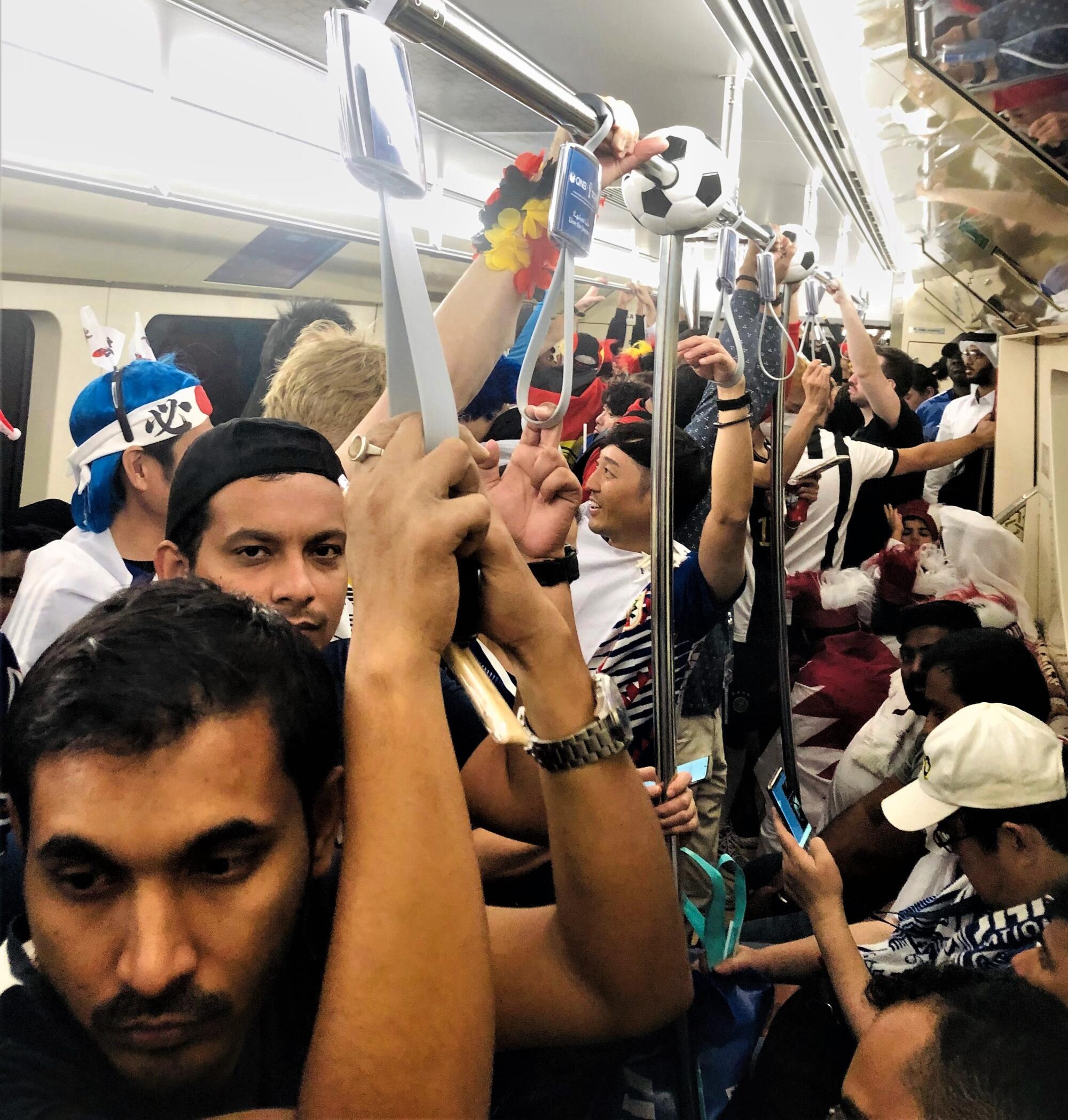
Qataris love shopping malls and the massive three-story Mall of Qatar, which is next to the stadium, is their crown jewel, with 520 stores spread over 5.4 million square feet, enough space for 93 regulation-size soccer fields. The Villaggio mall near my apartment is just a fraction that size but it has a skating rink, a theme park and a ceiling painted to look like the sky above a river with Gondola boats.
The trip from stadium to stadium took 42 minutes and from the mall it was a 30-minute walk to the media entrance, allowing me to get to my seat about an hour before kickoff.
Canada was playing in a World Cup for the first time in 36 years and showed some opening-game jitters, searching for the perfect pass instead of settling for a good one. Still, it had a chance to take the lead on a penalty kick in the 10th minute, but Alphonso Davies’ attempt was weak and Belgium keeper Thibault Courtois smothered it, becoming the first Belgium goalie to stop a penalty kick in the World Cup since 1966.
Michy Batshuayi made Davies’ mistake even more painful, scoring in the 44th minute to get Belgium the only goal it would need for a 1-0 win. Canada has played four World Cup games in its history and is still looking for its first point and first goal.
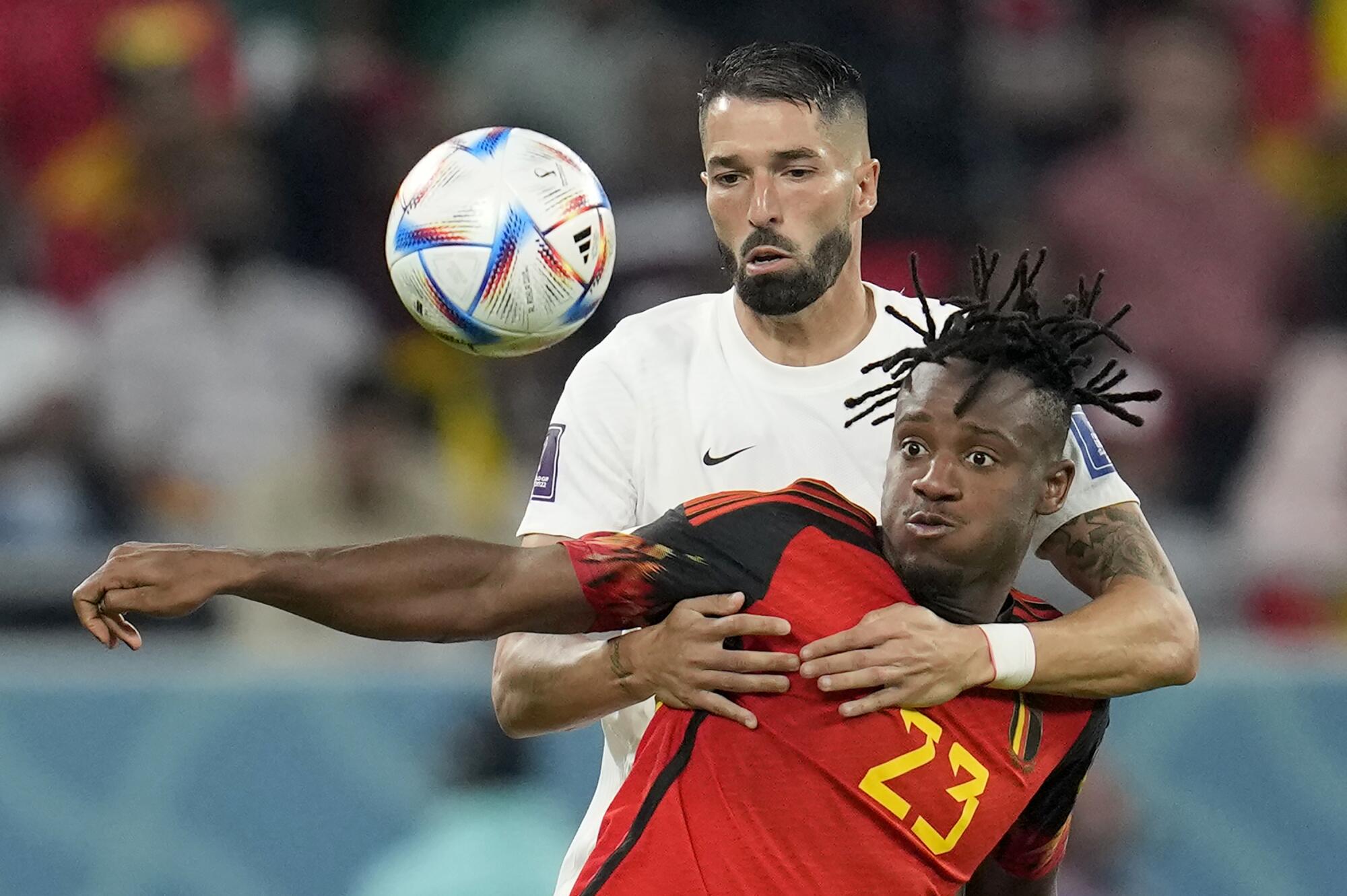
After the game I made my way downstairs for a demeaning exercise called “the mixed zone,” which is common at international soccer matches and the Olympic Games. The way it works is journalists are hoarded into a large room and forced to stand behind three-foot-tall barriers like cows on their way to slaughter. To get from their dressing room to the team bus, the players must walk through the room, but they are on the other side of the barriers. This is the only game-day availability media members have with the players, who are free to stop and answer questions.
Or not.
Most players don’t stop. To dissuade anyone who even thought of asking Gareth Bale a question after last Monday’s draw with the U.S., the Welsh captain was led through the mixed zone by some hired muscle in the form of a burly security guard.
The Canadians, as you probably could have guessed, were much more cooperative.
“The world’s biggest stage,” said defender Steven Vitoria, one of several Canadians who granted interviews. “We didn’t come here to play well and lose. We want to play well and win. But we’re on the right path. There’s a lot to be proud of.”
The Metro trip back seemed faster and walking back to my apartment in the cool of the desert morning rather than under the scorching sun I had set out under was much more pleasant. When I put the key in the door, it was just after 2:30 a.m. It had been a 14-hour day during which I saw four teams, two stadiums, two penalty kicks, four goals and took a couple of train rides. It was just as easy as the Qataris promised.
I guess they were telling the truth this time.

